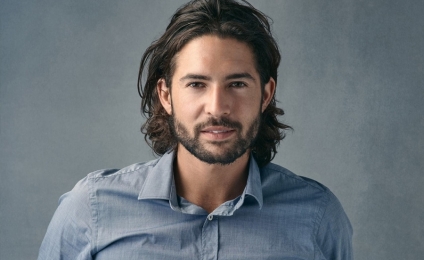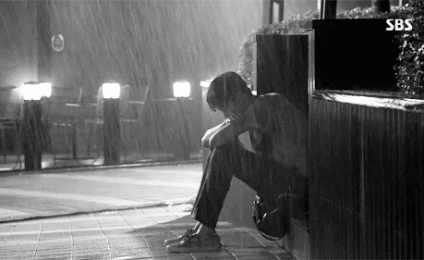There’s no pain quite like the one that comes from losing the person who once made your heart feel whole. Whether it’s the silence that follows death or the ache of a relationship ending, the emptiness it leaves behind can be all-consuming. It doesn’t matter how strong you think you are—when someone you love is suddenly gone, the weight of their absence presses on every part of your soul.
Grief is not just emotional—it’s physical, spiritual, and deeply disorienting. For some, the emotional strain becomes so intense that it manifests physically, a phenomenon known as broken heart syndrome, something even the American Heart Association recognizes as real. It's a testament to how powerfully love—and loss—affect our entire being.
Yet within the pain, there can be growth. No one wants to hear that in the early days of loss. But with time, certain truths begin to emerge—truths you couldn’t have seen when your heart was still freshly shattered.
Losing someone doesn’t just change you. It reveals you. It tests your values, breaks open your beliefs, and forces you to ask questions you might’ve spent your whole life avoiding. You start to understand what truly matters, what’s worth your time, and what it means to be alive.
In my own life, the grief I’ve faced has not only hurt me—it’s shaped me. It has handed me insights I didn’t ask for but now cherish. I’ve gathered these lessons not to romanticize loss, but to honor the transformation it brought.
If you’ve lost someone—or are trying to find your way through that heartbreak—I want to share with you the seven things I came to understand through losing the love of my life. May these reflections help you feel a little more seen, a little more hopeful, and a lot less alone.
7 Lessons I Discovered After Losing the Love of My Life
1. Life Can Shift Instantly—So Don’t Wait to Live It Fully
The loss of someone you deeply love reshapes your world in ways you can never quite prepare for. When both of my parents passed away just three days apart, the ground beneath me shifted forever. That moment became a turning point in my understanding of how fragile life truly is. Everything I had taken for granted—the people, the moments, the sense of time—suddenly felt fleeting.
From that point forward, I realized that life doesn't wait for you to be ready. If you're holding onto a dream but keep stalling, waiting for the "perfect time," let me assure you—there is no such time. You have to begin before you're ready, leap before you feel brave enough, and pursue your passions while life still offers you the chance.
That wake-up call changed my priorities. I started asking myself what really mattered. The answer came clearly: relationships, purpose, and presence. My loved ones, my vision of becoming a writer, a speaker, and someone who uplifts others—these became non-negotiables.
I no longer wanted to live a life where I looked back wondering what could have been. Instead, I committed to making memories, showing up fully, and appreciating every connection I held dear. If life can change in an instant, then every moment is sacred—and it deserves to be lived like it might be your last chance to say, “I’m proud of what I chose.”
2. Real Wealth Is Found in People, Not Possessions
Eckhart Tolle once said that recognizing the goodness already present in your life is the foundation of abundance. And after experiencing deep loss, I can tell you—he’s right. The people you share your days with are more valuable than anything money can buy.
We spend so much time chasing external things: bigger homes, newer gadgets, social status. But when you're grieving, none of that matters. Not one bit. The people who hold your hand, sit quietly beside you, or make you laugh through your tears—they are your true treasure.
Material wealth is replaceable. People are not. And the absence of someone you love has a way of making that truth searingly clear. Once someone you love is gone, there are no do-overs, no amount of wealth or power that can fill the space they once held.
That’s why it’s so important to express your gratitude while you still can. Say "I love you." Make the call. Send the message. Nurture your connections and give your presence freely. In doing so, you not only strengthen those bonds—you create the very meaning that makes life worth living.
It was the love of my family and friends that pulled me through my darkest moments. Their care and support were the lifeline I didn’t know I’d need. And in return, I try every day to give others that same lifeline, knowing just how much it matters.
3. Grief Isn’t Linear—Let It Be Messy, Let It Be Real
No one hands you a map when you lose someone. There’s no set timetable, no checklist, no guaranteed path to feeling “okay” again. The pain comes in waves—sometimes expected, often not. You might be fine one day, and crumbling the next. That’s normal. That’s grief.
You may feel abandoned, betrayed, even angry at the person who left. You might also feel numb or unable to cry when you think you should. All of it is valid. Trying to suppress those feelings only makes them louder in the long run. You can pretend you're okay, keep yourself busy, smile through the heartache—but unresolved pain doesn’t disappear. It waits. It builds. And eventually, it finds a way to erupt.
True healing begins when you stop trying to rush your way through it. You let the pain have its say. You sit with it, honor it, and trust that it will change form with time.
One of the most powerful aspects of healing I’ve discovered is forgiveness. And let me be honest—it’s not easy. When someone hurts you, leaves you, or betrays your trust, forgiveness can feel impossible. But holding onto bitterness only deepens the wound. It keeps you tethered to the moment of pain.
Forgiveness isn’t about forgetting what happened. It’s about freeing yourself from the weight of it. And that freedom creates space for light to enter again—for new beginnings, for hope, for joy that doesn’t have to wait for everything to be perfect.
The most overlooked part of healing? Being gentle with yourself. You don’t have to be the strong one all the time. It took me years to understand that caring for myself—emotionally, mentally, physically—wasn’t selfish. It was essential.

4. You Always Have a Choice—Even in the Darkest Moments
Loss can feel like a trap—a dark, windowless room where all the air has been sucked out. When you're in that space, it’s easy to believe that you’re powerless, that your only role is to endure. But one of the most important lessons I learned is this: even in your lowest moments, you still have a choice.
You may not get to choose the circumstances. Death, breakups, betrayal—these things often come without warning and outside of your control. But you do get to choose how you respond. And that response shapes your future far more than the tragedy itself.
This is where the Power of Choice comes in. It’s not some vague concept. It’s the daily decision to show up, to keep going, to lean toward the light even when the dark feels more familiar. It’s choosing hope, not because it’s easy—but because it’s the only way forward.
You can let pain harden you or soften you. You can let it bury your dreams or fuel them. The moment I chose to see my loss not just as an end but as a beginning—something shifted inside me. I started asking, “What can I learn from this? How can I grow?”
Choosing to hope, choosing to heal, choosing to live fully even while grieving—these are not acts of denial. They are acts of courage. And with each choice, you begin to rebuild something stronger than what was lost: yourself.
5. Your Purpose Can Be Born From Your Pain
When your heart breaks, it cracks open a part of you that may have been hidden. Beneath the grief and sorrow, there is often something waiting—a calling, a truth, a sense of meaning that wouldn’t have been uncovered any other way.
Every time I lost someone I loved, I was brought face-to-face with who I really was beneath the distractions. It was painful, yes—but also illuminating. I began to strip away what didn’t matter and focus on what did.
Purpose, for me, became a lifeline. It gave me direction when everything felt chaotic. But discovering your purpose doesn’t always happen in a lightning bolt moment. It’s often quiet. It arrives in pieces. And it reveals itself through the small, consistent actions you take toward what lights you up.
Don’t worry about having it all figured out. Begin where you are. Take one step, then another. Set goals that excite you, and don’t be afraid to adjust them as you grow. Celebrate even the tiniest victories—they add up.
And share your journey. Let the people around you witness your becoming. Because purpose isn’t just about doing something important—it’s about becoming someone who lives in alignment with what matters most. When you find that rhythm, you begin to experience happiness not as a fleeting emotion, but as a natural result of living your truth.
6. The Past Is a Teacher—But It Shouldn’t Be Your Home
Grief has a way of anchoring us in memory. We go over old conversations, revisit missed opportunities, and cling to what used to be. But while the past can offer wisdom, it’s not where we’re meant to stay.
The more tightly you hold on to what was, the harder it becomes to embrace what could be. Your arms are full of what’s already gone—and that leaves no room for what’s trying to arrive.
You are not your history. You are not your regrets. You are not defined by the person you were when the pain hit. You’re the one who survived. The one who kept going. And that strength is not just admirable—it’s transformational.
Let your past be your foundation, not your prison. Learn from it, grow through it, but don’t let it steal your present or your future. There is a life waiting to be lived—a version of you that’s braver, wiser, and more open than ever before.
7. Running From Life Won’t Save You—Facing It Will Set You Free
After loss, it’s natural to want to withdraw—to turn away from the world and retreat into something that feels safer, quieter, more manageable. There were days when I wanted to disappear, to numb myself from everything painful. But no matter how far I tried to run, the truth followed.
Pain doesn’t vanish just because you avoid it. In fact, the more you run, the more exhausted you become—emotionally, mentally, spiritually. And eventually, you realize that you’re not actually moving at all. You’re stuck in place, carrying the same grief into every new day.
True healing begins when you stop running. When you decide to turn around, plant your feet, and face life head-on—even when it’s ugly, even when it hurts. That’s when you start to grow.
It’s okay to fall apart. Let the tears come. Let the silence speak. But don’t stay in that space forever. Allow yourself the grace to break, then gather the pieces and rebuild with intention. That rebuilding process, no matter how slow, is the real victory.
Every hardship you’ve faced has shaped you. Every scar carries a story of strength. And through it all, you’ve become someone with greater depth, greater empathy, and greater capacity to love.
There’s a quote I keep close to my heart:
“The most beautiful people we have known are those who have known defeat, known suffering, known struggle, known loss, and found their way out of the depths...”
That beauty doesn’t come from perfection. It comes from living fully—through the darkness and into the light. That’s what loss taught me. And if you’re grieving, I hope these words remind you that you are not alone, and you are not broken. You are becoming.
Let your pain shape you, not define you. Let your heart stay open, even if it trembles. And above all, remember this: life, no matter how unpredictable, is still worth showing up for. Every single day.


























